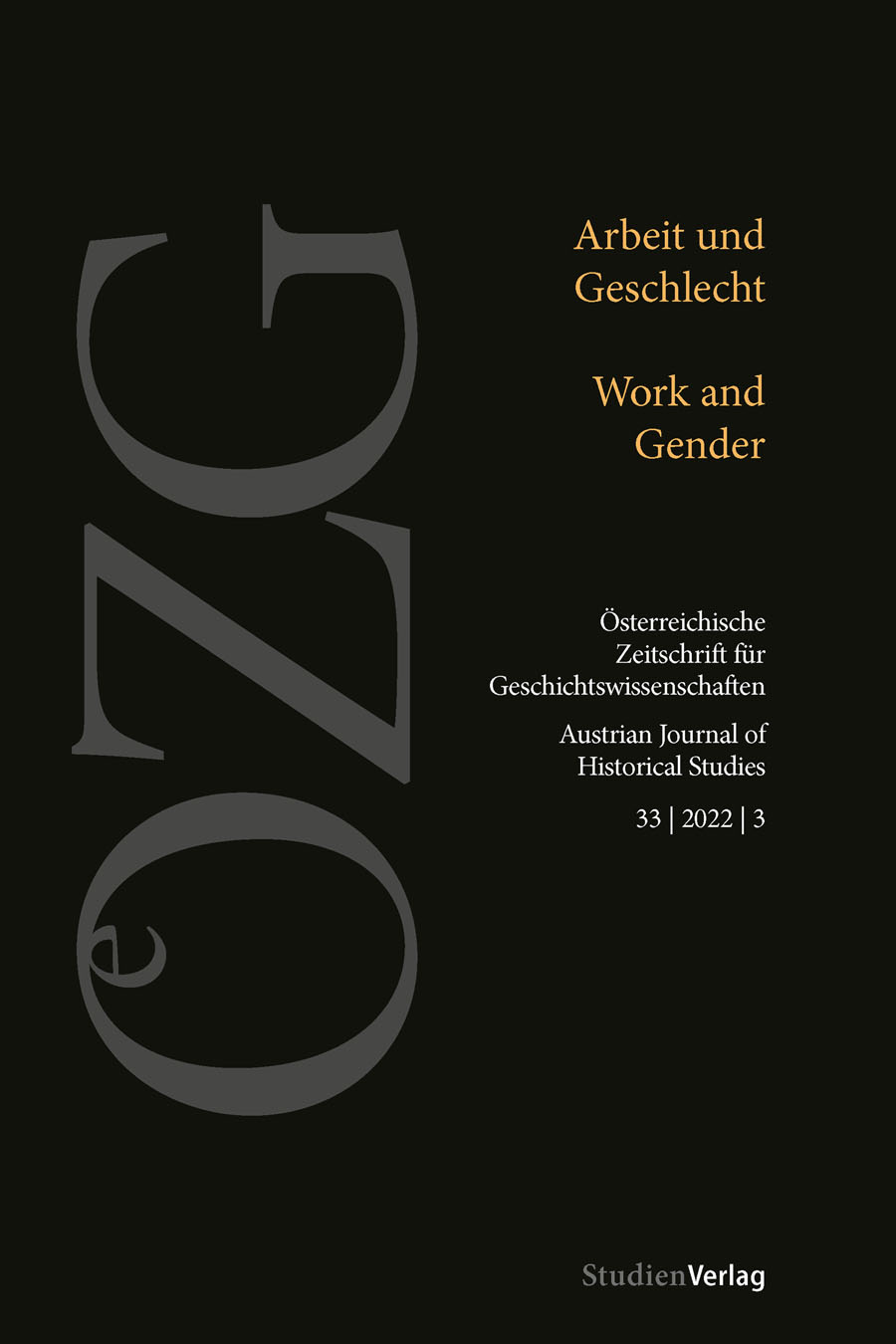Ein Mädchen, drei Namen
Die politische Teilhabe neuer Frauen bei Maria Leitner
DOI:
https://doi.org/10.25365/oezg-2022-33-3-7Schlagworte:
committed literature, new objectivity, Vorwärts, political participation, female agency, New Woman, workers’ movement, female white-collar workers, gender, workAbstract
This contribution presents a reading of Maria Leitner’s novel "Mädchen mit drei Namen" (1932). The novel intervenes in the contemporary discourse on the New Woman and extends it by two crucial aspects. First, it documents the desolate living and working conditions of young working women in Berlin in the early 1930s. Second, it addresses these women as potential activists of the workers’ movement. The article investigates whether or under what conditions the literary mobilization of the young generation of women succeeded. The analysis of Leitner’s novel is complemented by examining the discussion of Irmgard Keun’s novel "Gilgi, eine von uns" in the social democratic newspaper "Vorwärts". Drawing on these two exceptional contributions to Weimar’s new generation of women, the article reveals the intricate intertwining of the discourse on their political participation with the ongoing debate about female representations in the mass media.
Downloads
Veröffentlicht
Zitationsvorschlag
Ausgabe
Rubrik
Lizenz
Copyright (c) 2022 Österreichische Zeitschrift für Geschichtswissenschaften

Dieses Werk steht unter der Lizenz Creative Commons Namensnennung 4.0 International.


